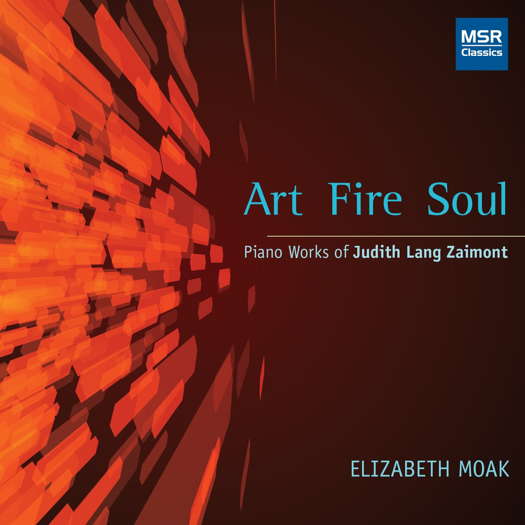 VIDEO PODCAST: John Dante Prevedini leads a discussion about The Creative Spark, including contributions from Ryan Ash, Sean Neukom, Adrian Rumson, Stephen Francis Vasta, David Arditti, Halida Dinova and Andrew Arceci.
VIDEO PODCAST: John Dante Prevedini leads a discussion about The Creative Spark, including contributions from Ryan Ash, Sean Neukom, Adrian Rumson, Stephen Francis Vasta, David Arditti, Halida Dinova and Andrew Arceci.

Thoroughly Delightful
GEOFF PEARCE listens to chamber music by Poulenc
'... the performers are all very fine ...'
This lovely set comprising five CDs has just been released by Naxos and is a real gem. It encompasses music that Poulenc wrote over his life, from his earliest public composition, Rapsodie Negre, to the very last, his sonatas for oboe and piano and for clarinet and piano. There is some music that I am very familiar with, and some that I had never heard before. Poulenc, who wrote chamber music intermittently throughout his life, is a composer that has always appealed to me for his sparkling wit, quicksilver changes of mood, confident writing and clarity of texture. I feel that his music is so essentially what I consider 'French'.
The first disc comprises the Sextet for Piano and Wind, Sonata for Oboe and Piano, Trio for Piano, Oboe and Bassoon, Sonata for Flute and Piano and Villanelle for Pipe and Piano. I was familiar with all of these works, except for the Villanelle. The Sextet receives a beautifully tight and detailed performance, and the virtuosity of the players - Alexandre Tharaud, piano, Philippe Bernold, flute, Olivier Doise, oboe, Ronald Van Spaendonck, clarinet, Laurent Lefèvre, bassoon and Hervé Joulain, horn - is evident.
The Oboe Sonata, performed by Olivier Doise and Alexandre Tharaud is equally very fine, and I am most impressed with Olivier Doise, who is a very assured and sensitive player, able to colour his sound beautifully and understands this work, which is not so easy to play. I do not think that I have heard a finer performance, and only wish that I could perform this as well.
Listen — Poulenc: Déploration: Très calme (Sonata for Oboe and Piano)
(8.505258 CD1 track 6, 3:16-4:07) ℗ 1999-2000 HNH International Ltd :
The Trio for Piano, Oboe and Bassoon - performed by Alexandre Tharaud, Olivier Doise and Laurent Lefèvre - equally receives a standout performance. This work demands a lot from the players and in particular from the bassoonist, and it was a true delight to hear.
The Sonata for Flute and Piano received a loving and assured performance, without a hint of the shrillness that one sometimes hears in this work. It is an often recorded work but is as fine as any that I have heard.
The Villanelle, here played with great charm on recorder by Philippe Bernold with, again, Alexandre Tharaud on piano, is a simple, short piece depicting a love scene between a young couple.
The second disc contains the Sonata for Violin and Piano, Bagatelle for Violin and Piano, Sonata for Clarinet and Piano, and the Sonata for Cello and Piano. Apart from the Clarinet Sonata, I did not know any of the other works and was pleasantly surprised and cannot but wonder why these works are not more widely known. Like all the recordings in this set that I have listened to, I was very happy with the great understanding that violinist Graf Mourja and pianist Alexandre Tharaud bought to the Sonata for Violin and Piano and the Bagatelle which follows. The Bagatelle, from Le bal masqué, was a riot, and thoroughly delightful.
Clarinettist Ronald Van Spaendonck in the Sonata for Clarinet and Piano impressed me with his impeccable intonation and articulation and his wide range of dynamics. This led to a very exciting performance. This work was originally performed by Benny Goodman and Leonard Bernstein.
Listen — Poulenc: Allegro tristemente: Allegretto – Très calme – Tempo allegretto
(Sonata for Clarinet and Piano)
(8.505258 CD2 track 5, 4:10-4:51) ℗ 1999-2000 HNH International Ltd :
The Sonata for Piano and Cello is quite a substantial work in four movements, full of warmth and charm, and again receives a very nice performance here from Alexandre Tharaud and Françoise Groben. I was delighted as I had never heard this work before. There is plenty of contrast between all the movements, and one is always entranced.
The Third disc contains works all new to me. The Capriccio from Le bal masqué, a four minute work for two pianos, is full of contrast, charm and wit. I don't think it could have been written by anyone else.
This is followed by the four movement Sonata for Two Pianos. This is quite a serious substantial work, with the charm, wit and quite dramatic gestures that endear me so much to Poulenc. Here it receives a rousing performance with great precision and dynamic contrasts.
The next item is the Élégie for Two Pianos, a tender and nostalgic piece which at times becomes quite impassioned.
The brief L'embarquement pour Cythere, for two pianos and one of the most popular of Poulenc's works, is played with great affection.
The Sonata for Piano Four hands, much slighter than the previous Sonata for Two Pianos, is more light hearted. This would be a great piece to perform and is very enjoyable. All these piano works on this disc are performed by Alexandre Tharaud and François Chaplin.
Listen — Poulenc: Final: Très vite (Sonata for Piano Four Hands)
(8.505258 CD3 track 10, 0:38-1:18) ℗ 1999-2000 HNH International Ltd :
Another brief work follows, the Sonata for Two Clarinets, in three movements, played by Ronald Van Spaendonck and André Moisan. If you told me that Stravinsky wrote this piece, I would believe you. The same could be said for the equally brief Sonata for Clarinet and Bassoon, performed by Ronald Van Spaendonck and Laurent Lefèvre. I am surprised not to have heard either of these last two pieces before. They would be great in a wind recital.
The final work is the delightful and charming Sonata for Horn, Trumpet and Trombone, slightly longer than the three previous pieces. At times it is fun and witty, and others, human and warm. I was very pleasantly surprised.
Disc 4 begins with Le bal masqué (1932) for Baritone and Orchestra on poems by Max Jacobh. This bright, cheerful piece is easily recognised as the work of Poulenc. He has chosen his instrumentation with great care, so that there is clarity, but at the same time a wide variety of colour to reflect the changing character of this small work. Poulenc was proud of this work. People often fail to recognise what a great writer for voice he is. Baritone soloist Franck Leguérinel is delightful and agile and, with the addition of very fine instrumentalists Alexandre Tharaud, piano, Jean-Marc Phillips, violin, Françoise Groben, cello, Serge Krichewski, oboe, Marc Bauer, cornet, Ronald Van Spaendonck, clarinet, Marie Gondeau, bassoon and Françoise Rivalland, percussion, conducted by Pierre-Michel Durand, this little work really sparkles.
Listen — Poulenc: Malvina (Le bal masqué)
(8.505258 CD4 track 3, 0:10-0:54) ℗ 1999-2000 HNH International Ltd :
Le Bestiare ou Cortège d'Orphée originally consisted of twelve songs, but later, on the advice of Georges Auric, Poulenc changed this to six. The songs, using the same soloist as the previous work, are short, and the composer wanted the singer to perform 'without humour'. These simple songs are very brief, in fact one lasts only twenty seconds, and are sung simply. I found them very interesting and the instrumental parts provide great character.
This is followed by Quatre poèmes de Max Jacob (1921), again using the same soloist and similar instrumentation to Le Bestiare .... Rapsodie Negre, written in 1917 when the composer was eighteen, was dedicated to Satie and met mixed audience reaction, but all the characteristics of the mature composer are here, and it is a delight.
Cocades (1919) for tenor and small ensemble, dedicated to Georges Auric, is in three short movements, and Poulenc regarded it as his most 'Les Six' composition. In writing this work, he wanted to show that he was not an impressionist. Performed here by tenor Jean Delescluse, violinist Thibault Vieux, trumpeter Guy Touvron, trombonist Jacques Mauger and percussionists Pascal Delage and Alexandre Tharaud, this work is, again, quite delightful.
Élégie for Horn and Piano (1957) is a memorial for Dennis Brain. Stormy at the start, reflecting the violence of Brain's death, it then becomes a bitter and soulful lament. The writing also reflects Brain's mastery of his instrument and Hervé Joulain, the horn player on this recording, rises magnificently to the occasion, supported by Alexandre Tharaud.
The restful but somewhat melancholic Sarabande for Guitar (1960) is Poulenc's only work for this instrument, played here by Pierre Laniau.
The final disc contains two versions of L'Histoire de Babar, le petit éléphant (1941-1945) - the first in French with a young boy narrator, François Mouzaya, and the second by a young girl, Natasha Emerson, in English. Both versions are great, so I am somewhat mystified why there are two versions in the one set. The story is by Jean de Brunhoff, whom Poulenc had known for some time. The story is very popular and I remember reading it as a child. I have heard the French version a couple of times before. The work is scored for narrator and piano, here Alexandre Tharaud in both versions. These are fine accounts and will entrance both children and adults.
Listen — Poulenc: L'Histoire de Babar, le petit éléphant
(8.505258 CD5 track 1, 6:13-7:03) ℗ 1999-2000 HNH International Ltd :
A suite of little incidental pieces for Jean Anouilh's play L'Invitation au Chateau (1947) is scored for violin, clarinet and piano and comprises eleven short, gay movements which are charming and I think would have wide appeal. One of my professors, David Farquhar, also wrote incidental music for this play, in it's English version by Christopher Fry, Known as Ring Round The Moon - well worth a listen.
The other work on this disc, before the English version of Babar, is incidental music to another Anouilh play entitled Leocadia and Poulenc composed this in 1940. It is scored lightly for a small ensemble, reminiscent of a salon orchestra, popular around that period. Especially interesting is 'Valse des chemins de l'amour', which is a song. The music throughout this incidental music is very charming and was quite a surprise. It is obviously very French, but not perhaps what I would have thought from Poulenc.
Any lover of Poulenc's music will enjoy this set: the performers are all very fine, the recording levels and balance are pleasing, there are informative programme notes, and music that has been composed over Poulenc's entire composition span. I am sure that even those very familiar with Poulenc's music will find a few surprises here. This truly is one of the nicest sets that I have ever reviewed - enjoy.
Copyright © 10 April 2022
Geoff Pearce,
Sydney, Australia

CD INFORMATION - POULENC: COMPLETE CHAMBER MUSIC
CLASSICAL MUSIC ARTICLES ABOUT FRANCE



